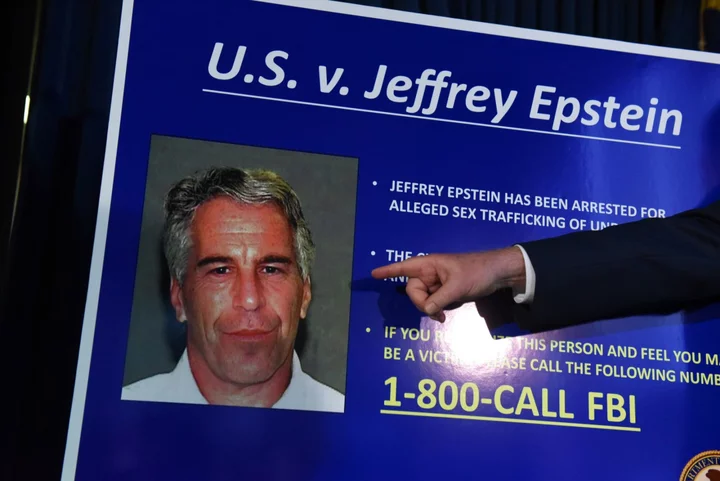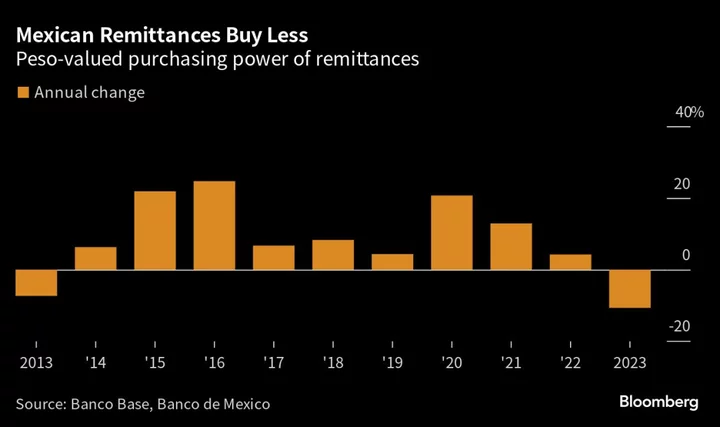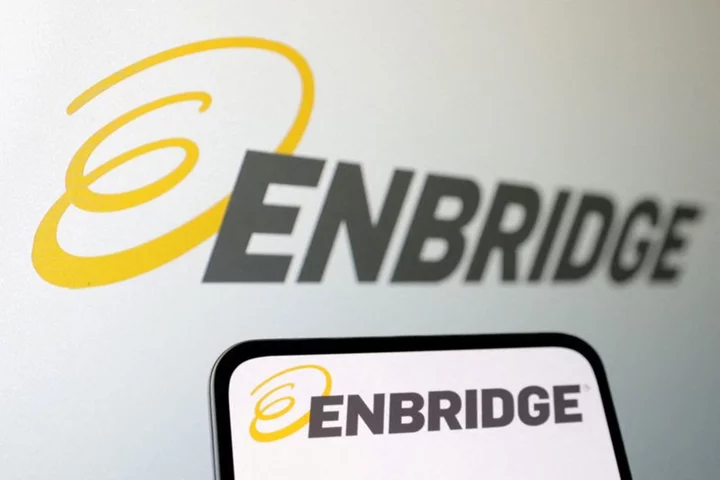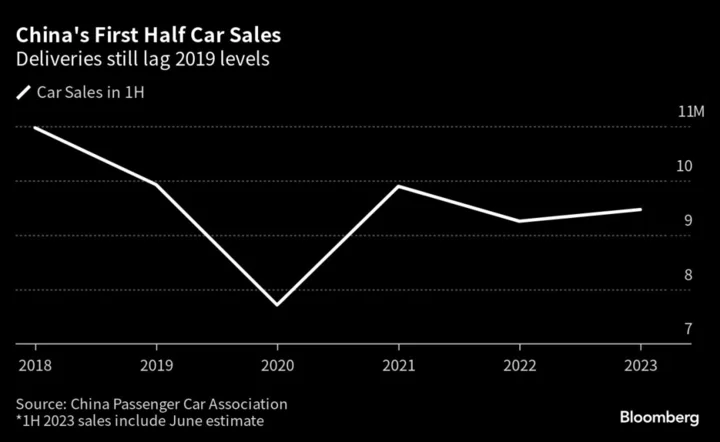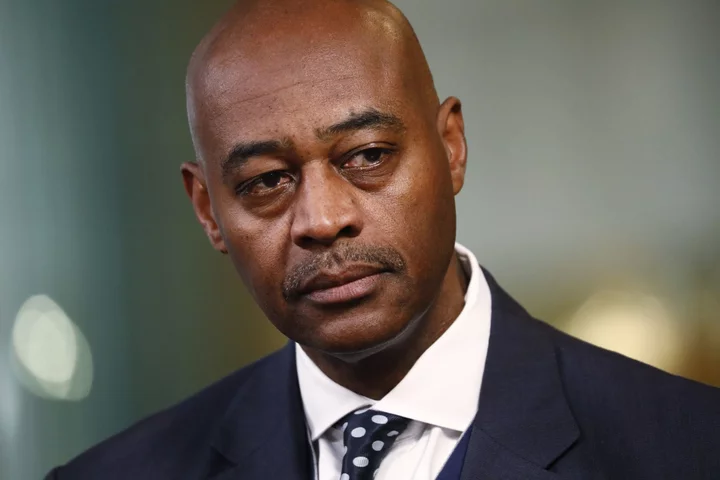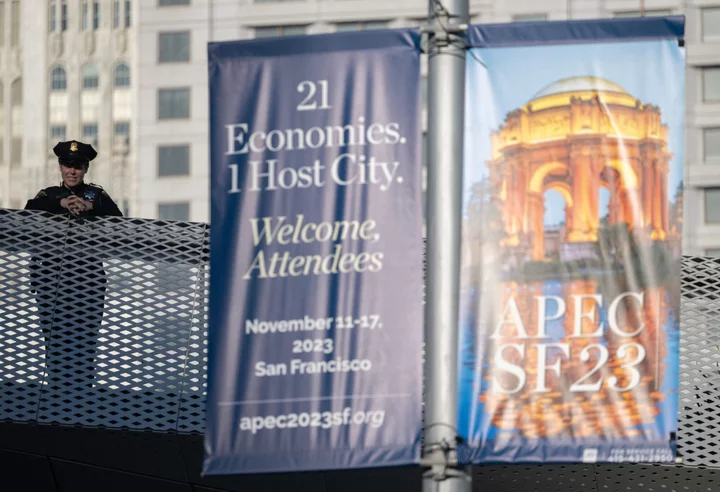Subject: The Epstein files. Message: Wrap them up — ASAP.
One after another, the texts, calls and emails rolled in.
Denise George knew from the beginning that she was going up against powerful players on Wall Street over their supposed links to Jeffrey Epstein. But she soon sensed that she was also up against forces here at home, in the US Virgin Islands, where the financier seemed to have preyed on women and girls with impunity.
People in St. Thomas wanted the Epstein scandal — and the uncomfortable questions it was raising — to go away, and fast. But George says she needed time. She was fired as attorney general after spending more than three years trying to seek justice.
Correspondence about the case obtained by Bloomberg News underscores the sense of urgency within the local government and the pressure George came under. Hundreds of pages court documents offer a window into details about Epstein’s web of influence in the US territory.
George was the driving force behind three high-profile legal battles involving Epstein, the Svengali who courted a wide circle of rich and powerful men – from Bill Gates to Prince Andrew – even after he was branded a sex offender.
On this rain-drenched Tuesday in the Caribbean, George is telling her story about those landmark cases, which reverberated like a thunderclap through the power corridors of business and politics. Even now, four years after Epstein died by suicide in a Manhattan jail cell, it’s hard to shake the feeling that a code of silence, a sort of omerta, hangs over his affairs here.
George, 64, is sitting inside a poolside restaurant at a flamingo-pink hotel, overlooking the rooftops of St. Thomas. It’s mid-summer in the tropics, low season here. The place is empty. On the silver chain round her neck hangs a gift from her husband: a pendant in the shape of the scales of justice.
Epstein’s estate was the first to settle with the Virgin Islands. A year ago, it agreed to pay $105 million, plus half the proceeds from the sale of Little St. James, AKA “Little St. Jeff,” the private island where authorities allege some of Epstein’s crimes took place.
Then, last January, Wall Street billionaire Leon Black settled for $62.5 million. Next came JPMorgan Chase., in September, for $75 million. None of the parties admitted to wrongdoing. All of them declined to comment for this story.
Without those cases, the world may have never glimpsed some of the secrets Epstein and his circle harbored, or the depths of his influence here in the Caribbean. Emails that surfaced in the litigation, for instance, revealed Epstein’s unusually close relationship with Jes Staley, a top banker at JPMorgan Chase & Co. who went on to run Barclays Plc.
JPMorgan had alleged in court that Staley failed to alert the bank of all he knew about Epstein. Staley – who swapped sexually suggestive emails about young women with Epstein and visited Little St. Jeff, according to emails filed in court — hasn’t been accused of wrongdoing by the authorities. Lawyers for Staley claim he had no decision-making authority over Epstein’s JPMorgan accounts.
In a nutshell, George’s story behind these stories is this:
She felt pressure from the territory’s governor to quickly settle the Epstein cases and move on. To George, the message was clear: Bury the Epstein scandal once and for all.
“It was very professional but we did have very different values and that created a lot of contention between us throughout the course of the Epstein investigation and other matters as well,” she said.
After George was dismissed last December, Governor Albert Bryan Jr. was clear: He was eager to put the entire scandal behind the US Virgin Islands.
“If we never mention Jeffrey Epstein again, that would be good for me,” Bryan told The St. Thomas Source. At the time, his office said George’s dismissal was unrelated to her pursuit of JPMorgan. But Bryan later said he couldn’t have an attorney general launching lawsuits he didn’t know about. His office didn’t respond to requests for comment.
This much is sure: Over all the years Epstein sex-trafficked and sexually abused dozens of underage girls and young women, he projected money and influence through Virgin Islands as if the territory were his private fief.
He cultivated politicians, donated heavily to campaigns and forged close ties with a powerful and well-connected local law firm. Cecile de Jongh, wife of one of Bryan’s predecessors as governor, John de Jongh, even worked for Epstein. She served as his office manager and unofficial political emissary. Mrs de Jongh declined to comment for this story.
During her deposition as part of the JPMorgan litigation, Mrs de Jongh was asked about seeking enrollment in English classes for women at Epstein’s request. She said she never saw anyone under distress and “would never do anything to harm anyone, or aid and abet anyone in harming someone.”
Epstein lobbied to relax rules that were imposed on him as a sex offender, with mixed success. He also received $300 million in tax breaks from the territory’s Economic Development Commission, some of them while now-Governor Bryan was EDC chairman. Neither Bryan nor any other official has been accused of any wrongdoing.
Web of Influence
Epstein spun his web influence over the islands in order to protect himself and hide his dark secrets, George says.
Despite the lurid record and all the stories surrounding Epstein, George says she wasn’t aware of the scale of his crimes when she was named attorney general in 2019, less than two months before Epstein was arrested at New Jersey’s Teterboro Airport after flying from Paris.
It didn’t take her long to find out. She was only a few weeks into the job when news reporters began calling. They wanted to know if authorities in the US Virgin Islands were investigating what Epstein had been up to for all those years on Little St. Jeff.
They weren’t.
Around the same time, Governor Bryan, who was sworn in in 2019, told George that Epstein had made a request: He wanted a new waiver to loosen certain restrictions placed on him as a convicted sex-offender, according to court filings. Epstein, for instance, had to give the Virgin Islands 21 days’ notice when he planned to travel.
“In my head I am thinking, Relax?” George recalls. “If anything, wouldn’t you say, Tighten them?”
A previous attorney general had granted such a waiver but later it had been revoked. Epstein wanted a new one, George testified during a deposition earlier this year.
Governor Bryan told her that Epstein’s lawyers would be in touch, she said. They happened to work for Kellerhals Ferguson Kroblin, according to the former prosecutor, the same local firm that supported his gubernatorial campaign.
Erika Kellerhals, who requested the waiver on Epstein’s behalf, had hosted a $1,000-a-head fundraiser for Bryan along with partner Greg Ferguson in 2018. Ferguson later was appointed to Bryan’s transition committee for economic regulation, according to a local press report.
Governor Bryan texted George in May 2019, she testified in a deposition, telling her to make a decision. She denied Epstein’s request.
George later testified that she thought Epstein was “flexing his political influence over or with the governor” rather than going through the usual channels.
Given Epstein’s apparent influence in Virgin Islands, who would want to rock the boat? George says she was willing to try. Around St. Thomas, she has a reputation as a straightshooter. The former public-corruption attorney stops short of pointing to official wrongdoing. But on this sticky August day, in her gold-buttoned blazer, she makes clear that she, for one, wouldn’t tolerate it.
“If I have to lose my job to avoid being part of a conspiracy to cover something up, I would do it,” George says. “My bar license, my integrity were more important to me. I wasn’t going to compromise that.”
When Epstein was found dead a few months later in his cramped Manhattan jail cell, George saw an opening. Epstein had quietly set up a trust in the Virgin Islands as a repository of his personal fortune, valued at $577 million at the time of his death. George decided to go after the estate and those who might have helped Epstein.
“He is dead,” she thought to herself, “but his accomplices must be alive.”
The law firm representing the estate: Kellerhals Ferguson Kroblin, the same one Epstein had used for years here, and the same one with connections to Governor Bryan. In court filings, the firm quickly blasted the Virgin Islands for sitting on its hands while Epstein was alive.
Kellerhals did not respond to a request for comment.
The governor gave his blessing when George indicated she wanted to launch a civil enforcement action against the estate. But the tone shifted when the litigation dragged on into a second year.
Privately, Bryan expressed frustration. He wanted to know why it was taking so long to settle with Epstein’s estate.
George claimed the civil racketeering case was complex and warranted a resolution that at least in part met Epstein’s myriad of wrongdoings in the USVI. In the end the estate returned $80 million in tax incentives, agreed to pay half a million to remediate environmental damage to one of Epstein’s islands, committed half the proceeds from the future sale of Little St James and established a victims’ compensation fund.
Officially, George, not the governor, was in charge of making the legal calls. But Bryan was still her boss and held the purse strings. It was a delicate balance, George said.
Trying to untangle a half-billion-dollar estate is a formidable task under the best of circumstances. It was even harder given the code of silence still surrounding the dead financier. Many of Epstein’s employees had signed nondisclosure agreements. Some alerted the estate’s lawyers the moment investigators reached out. On Little St. Jeff, groundskeepers avoided eye contact when authorities approached.
George herself traveled to Little St. Jeff. She still can’t shake eerie absurdity of seeing a dentist’s chair inside the luxury island villa.
In the end, the Epstein estate settled. The other battles would soon follow.
George didn’t get much time to celebrate. Four weeks after that deal was struck – and four days after George filed the suit against JPMorgan – the official news arrived from the Office of the Governor.
It was New Year’s Eve. George was cooking callaloo, Caribbean greens, at her father’s house. A security officer arrived at the door and handed her a letter.
Denise George, the 16th attorney general of the US Virgin Islands, had been summarily dismissed.
Author: Ava Benny-Morrison

